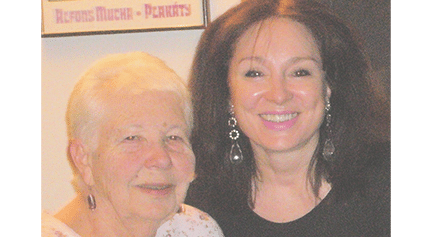In coaching others, what are strategies to support resilience—the capacity to meet adversity with strength? We’ve identified a few at Gestalt Coaching (and let us keep adding what works.):
1. Be in Your “Use of Self as Coach”
Get curious about your legacy narrative of survival that lives within you. If you do not know it, ask relatives what that might be. If, like me, you really have to imagine it because ancestors could not explain it—imagine a history that most supports you.
The contemporary spiritual teacher, Thomas Hubel, has suggested that times of fear and challenge trigger unconscious trauma that we have inherited from our family tree. He suggests that it is our work to be awake and compassionate to these fears and from this space of compassion, have more understanding of the suffering that we carry.
Use your survivor legacy to have more compassion for yourself while also serving to allow more compassion for others. Allow yourself to be surprised by the diversity of survivor stories that exist in our world. Recognize the fear that trying times evoke in you and have compassion and self-support strategies to be able, from a place of deep understanding, to recognize and resonate resilience to your coaching clients.
2. Name Your Fear
When you feel fear, it is so valuable to name the fear as a way of releasing the power of that fear so that you can own the innovation, choice and hope that can take the place of those fears. This is the unbelievable miracle and paradoxical power of naming one’s fears. The naming serves to diminish the size of the fear and that always feels surprising and even unbelievable. We also call this “the paradoxical theory of change.” To name a fear is also paradoxically the way to start releasing that fear.
Why manage fear? Fear serves a function preparing us to fight or flight. Fear primes our action system with hormones enabling us to be stronger, faster and intentionally strong. But if we cannot unpack from the fear, we keep the energy hormone of cortisol coursing through our system and we can end up more drained and weakened because we cannot let go of the fear. We feel weakened because we do not recharge without some relaxation.
This is the reason mindfulness and relaxation practices have become so in demand. Being mindful allows us to name what we are aware of and relaxation practices allow us to let go of what does not serve us and recharge. Ask yourself if you have practices to support your mindfulness and intentional relaxation. Good for your health and your focus. Practice the strategies of immediately naming the fear and breathe into the space of relaxing with mindfulness rather than reacting with more anxiety.
People who have taken courageous acts under fear rarely say that they did not feel fear. Instead, they report recognizing something bigger than the fear itself. From a mindset of curiosity, start asking yourself what is bigger than the fear that has a message. Sometimes we experience a radical disruption to the world as we know it—what new strategies can move us forward? What is compelling that reinforces our purpose? Often the way to transcend fear is to link to a purpose that is greater than the fear itself.
3. Become Aware of Inner Messages Triggered by Fear and Anxiety
Become aware of the inner messages that get triggered when confronted by fear and anxiety. Allow yourself to interrupt negative self-messages with short positive messages of compassion and personal recognition.
Henry Ford, the great car innovator, was known to say, “whether you think you can or you can’t, you’re both right.” Try giving yourself positive messages, because no one has the inside voice as you do. Positive messages serve to enhance your well-being and openness to new possibilities. And, it is powerful when we can shift our inner narrative from “can’t” to “can.” When a new idea arrives, what is the energy for “I can” versus the default pattern for “I can’t”?
4. Get Interested in Your Seven Muscles of Resilience
I have become a fan of the Resilience Alliance material created by Linda Hoopes, Ph.D. She has articulated the seven muscles of resilience as: positivity, confidence, priorities, creativity, connection, structure and experimentation. Knowing your strengths may validate what you are already doing but knowing areas that you can further develop will serve to strengthen your resilience and give your greater options in your use of your presence while coaching or otherwise. Employ self-compassion for the areas that need development and get support about how to work on an area or areas that strengthen your resilience.
Given my particular background, I always have to work on positivity—even though no one would suspect this. Even behind a smile, I might be thinking “I can’t” but, with familiarity and practice I can move to “I can.” When we can overcome our default pattern, we move from victim to victor. It’s a moment of self-liberation to identify what areas need to be supported because we can all have the option of becoming stronger. Some of our coaching clients will need more structure or more practice in connecting to others or more willingness to experiment before achieving resilience. It is valuable to consider what resilience muscles need more invitation to practice for their coaching to succeed.
5. Schedule Connection Time
We can reduce fear by reaching out to trusted others to share and support ourselves. When we share our deep and hidden fears with others, we also manage to create that space of intimacy that helps us renew ourselves. When people share their vulnerability with each other, trust gets strengthened.
Brene Brown has created a great deal of permission to realize the importance of using one’s vulnerability rather than trying to avoid sharing this delicate part of ourselves. An act of strength is knowing how to share this vulnerability. An act of wisdom is sensing who we can share ourselves with. A dear colleague of mine (Patrick Williams, Ph.D.) likes to say, “it’s good to be naked but only with the right people.” Practice: look to see who you can share your inner self-even on Zoom, Skype or Facetime.
Recognize the one amazing truth of global challenges like COVID-19—we were ALL in it together. Everyone was frightened but we had more choice than is first obvious. Even a frightening microbe enemy like COVID-19 can be controlled, though it takes discipline and collective action. Hand washing, social isolation, online sharing, massive communications and updates—and we all came through it, though all feeling different by the time lockdowns lifted.
The Turkish word, Tevekkul means to do all that is needed and then let the higher forces watch out for you. There is an old saying that at times of terror, even atheists find themselves talking to God. Let us be mindful but also hope/pray to be spared in difficult times.
6. The Age of Not Knowing
During COVID-19, my colleagues, Jonno Hanafin and Mary Ann Rainey, of the global gestalt Organisational Development program called “igold,” suggested that we were all “living in the Age of Not Knowing.” Indeed, the basic structure of our world that gave some known security and guidance shifted. However, times like those call for us to turn to each other, to give support to each other, to welcome new ideas and to trust that in the confusion of what we encounter-the way that guides us forward will emerge.
Otto Scharmer at MIT has written extensively on how we need contemplative practices and shared dialogue to enable the conversation about moving into the unknown. The leaders who trust themselves enough to name the unknown, while offering what they do know, will be those who guide us forward. They will be those who can access their positivity, confidence, priorities, creativity, connection, structure and experimentation to meet the emergent challenges.
Let us admit that our map of the old world has shifted and that we are now in disorientation, looking to rechart our world. Today’s leaders need to be able to address the truth of this as a way of sharing the new reality and inspiring trust to move forward. We who have the privilege of coaching them, need to welcome the unknown with curiosity and trust in our capacity to meet what is needed with resilient creativity and all our gifts of presence in the present. An old slogan asks if we are the change the world is waiting for? Indeed learning to manage our fear while strengthening the seven muscles of our resilience is a worthy strategy for coaching others.
In closing, the words of Rev. Dr. Lynn Ungar, poet and minister for lifespan learning and editor of Quest for the Unitarian Universalist Church of the Larger Fellowship, has written these words:
Do not reach out your hands.
Reach out your heart.
Reach out your words…
…of compassion that move, invisibly,
where we cannot touch.
Resource Links:
Collective Presencing – Thomas Hubl
ICF Gestalt Coaching Program-Istanbul and Toronto
igold OD program
Heartmath Institute
Resilience Alliance from Dr. Hoopes




